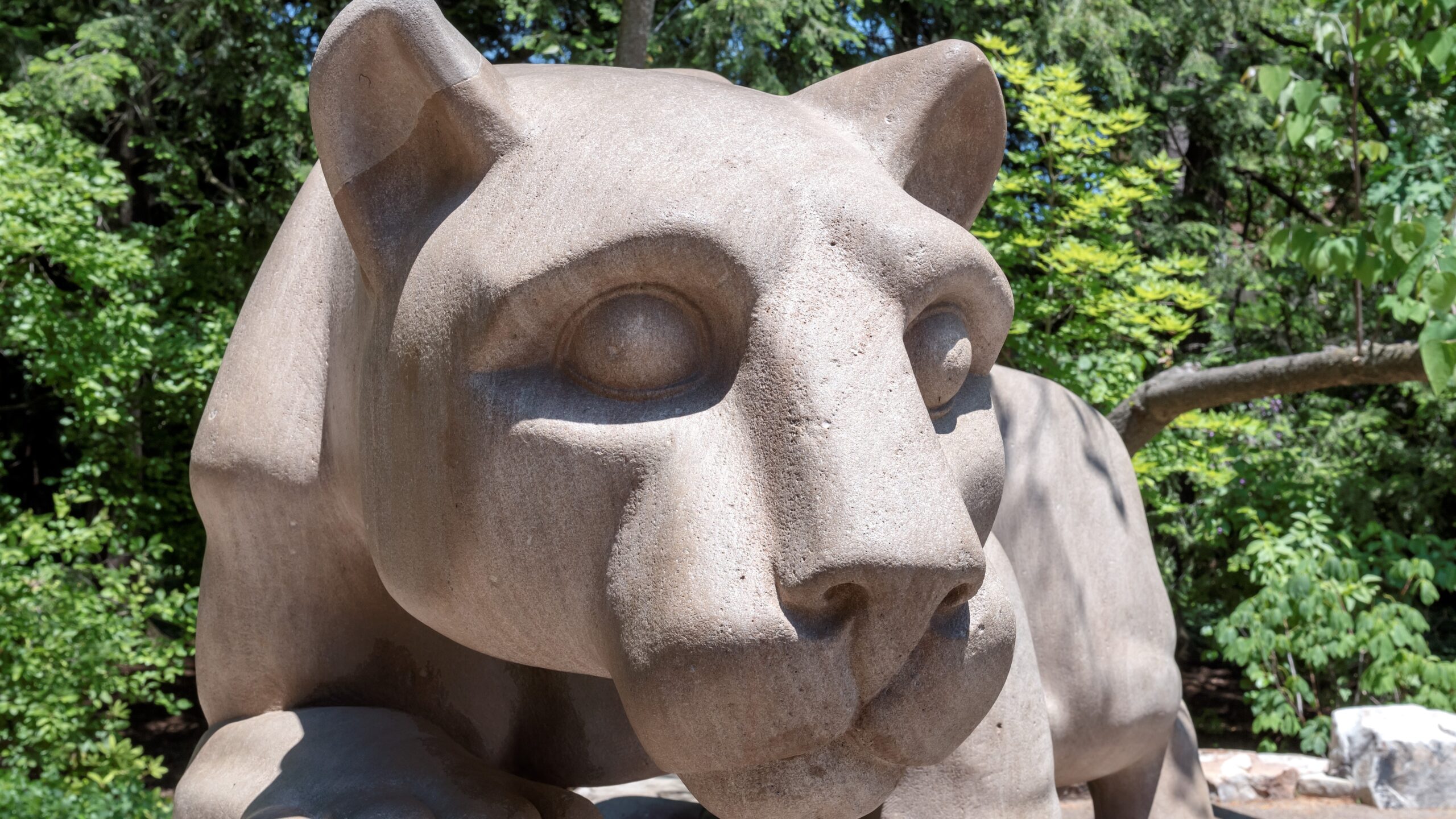Penn State is Struggling to Defend Free Expression
Nearly 40% of students surveyed by ACTA think it is at least sometimes acceptable to shout down or prevent a person from speaking on campus.
Free Expression is in Trouble at Penn State
Pennsylvania State University (Penn State) is falling behind on campus freedom. ACTA’s survey found that almost 60% of students believe professors who make comments that some students find offensive should be reported to the university. A majority of students think misunderstood statements will damage their reputations. Hardly any students have received training in Penn State’s free expression policies from staff or faculty. Even though 60% of students believe Penn State should do more to promote political diversity among faculty, the university requests DEI statements from faculty applicants.
But There Is a Path to Campus Freedom!
Penn State can become a place where people share their ideas freely if the university takes the actions outlined in ACTA’s Gold Standard for Freedom of ExpressionTM. The university can start by educating its students about the importance of free expression and by adopting three policies developed at the University of Chicago:
1. The Chicago Principles on Freedom of Expression, which state that everyone at a university should have the freedom to speak, write, listen, challenge, and learn.
2. The Kalven Report, which holds that a university must not take sides on social and political issues because doing so chills the free expression of individuals on campus.
3. The Shils Report, which explains that universities should hire and promote the most qualified people for teaching and research, regardless of their political views.
By adopting these policies—and by creating and implementing other ACTA Gold Standard policies to bolster viewpoint diversity among both students and faculty—Penn State can improve education for its students and enhance its reputation as a leading land-grant university.
What is the Gold Standard?
- Adopt the Chicago Principles on Freedom of Expression or a similarly strong statement.
- Establish clear expectations regarding free expression in student, faculty, and staff handbooks and codes of conduct.
- Include a free expression unit in new-student orientations.
- Protect the diversity of political viewpoints by adopting an institutional neutrality policy such as the Kalven Committee Report.
- Sponsor campus debates that model civil discourse.
- Encourage establishment of student groups promoting free expression.
- Protect the rights of invited speakers and listeners to engage with controversial ideas.
- Establish and enforce consequences that deter disruption of sponsored speakers, events, and classes.
- Encourage presidents, provosts, and deans to model respect for a broad range of viewpoints.
- Guarantee that viewpoint diversity is reflected in student life policies and practices.
- Support academic centers dedicated to free inquiry and intellectual diversity.
- Make intellectual diversity a stated goal in faculty hiring, evaluation, and promotion.
- Eliminate speech and IT policies that have a chilling effect on free expression.
- Ensure that Title IX and other disciplinary procedures do not infringe on free expression.
- Disband bias response teams.
- Review student government policies to ensure viewpoint neutrality in student group recognition and funding.
- Incorporate explicit policies of free expression in governance bylaws and other key institutional documents.
- Include a commitment to free expression as a criterion for presidential searches and evaluations.
- Require free expression and viewpoint diversity training for administrative staff.
- Conduct regular evaluations of the state of free expression and intellectual diversity on campus.
Campus Experience Survey: An Assessment of Pennsylvania State University Students
ACTA and College Pulse’s survey, based on the responses of 2,032 undergraduate students collected during the summer of 2024, found alarming rates of self-censorship among Penn State students and widespread intolerance of opposing views. These survey results demonstrate that Penn State has serious free expression and viewpoint diversity deficiencies that it must address if it hopes to cultivate an environment that advances deep learning, innovative scholarship, and free discourse.
View Survey Results71
%of students have not spoken up on campus before because they thought their opinion would be unwelcome.
59
%of students believe professors who say something they find offensive should be reported to the administration.
86
%of students report receiving no training on free expression policies from staff or faculty.

Stay up to date!
If you’re concerned about the direction Penn State is headed, sign up today to receive updates on our efforts to protect free expression and intellectual diversity on campus.
Free Your Campus, Free Your Mind
RECENT
DEVELOPMENTS



WHO WE ARE
Launched in 1995, we are the only organization that works with alumni, donors, trustees, and education leaders across the United States to support liberal arts education, uphold high academic standards, safeguard the free exchange of ideas on campus, and ensure that the next generation receives an intellectually rich, high-quality college education at an affordable price.
Discover MoreSTAY INFORMED
Sign up to receive updates on the most pressing issues facing our college campuses.